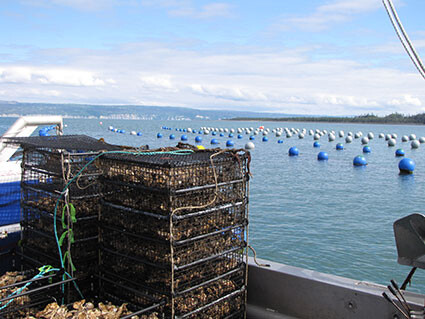Two prominent members of the Alaska House of Representatives have announced their opposition to Governor Mike Dunleavy’s proposal to lift the state’s 35-year old ban on fish farming.
Speaker of the House Bryce Edgmon, I-Dillingham, and House Rules Committee Chair Louise Stutes, R-Kodiak, issued a joint statement on Monday, voicing their concerns that the bill would not benefit the state’s commercial fishing industry. Without their support, House Bill 111, which seeks to permit the farming of certain types of fish is unlikely to progress through the legislature, according to Alaska Beacon.
“Alaska’s commercial fishing industry, our coastal communities, and fishing families across the state are suffering through historically poor market conditions, inconsistent returns, and unfair trade practices,” the legislators wrote in their statement. “Make no mistake, the industry will recover; however, lifting a ban on freshwater finfish farming sends the wrong signal, at the wrong time. It also erodes the spirit of the current ban and provides a foot in the door for possible salmon farming in Alaska.”
Edgmon, who also serves as vice chair of the House Fisheries Committee, and Stute, chair of the committee, emphasized that the proposal could have long-term implications, potentially undermining the state’s wild fisheries by allowing the introduction of fish farming in the state.
The Governor’s proposal, outlined in House Bill 111, seeks to maintain the state’s ban on salmon farming but would allow for other types of fish farming. Alaska has historically refrained from fish farming due to concerns about the environmental risks posed to wild fish populations, particularly salmon.
In response to the opposition, Governor Dunleavy defended the bill, emphasizing that the legislation is not about farming salmon but rather an opportunity to diversify food sources and boost local food security. “Since the COVID-19 pandemic threatened to cut off food imports to Alaska, we’ve encouraged programs that increase the amount of food grown and harvested locally,” Dunleavy said in a video statement shared by Alaska Beacon. “I think having another opportunity for food, another opportunity for small businesses, is a great thing for Alaska.”
As the debate continues, Alaska’s legislators will need to weigh the economic and environmental implications of lifting the fish farming ban in the state that has long prioritized the protection of its wild fisheries.







